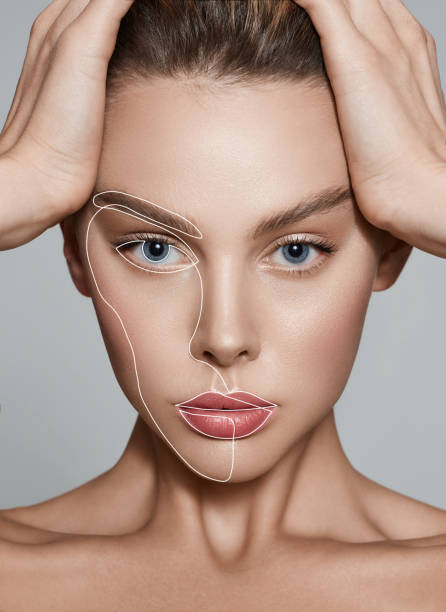The safety of a skin tightening treatment can depend on various factors, including the individual’s skin type, medical history, and the expertise of the practitioner administering the treatment. Generally, non-invasive procedures tend to be safer than invasive ones, but it’s essential to consult with a qualified dermatologist or plastic surgeon to determine the most suitable option for your specific needs. Some commonly considered safe non-invasive skin tightening treatments include:
- Radiofrequency (RF) Skin Tightening: RF treatments use radiofrequency energy to heat the deeper layers of the skin, stimulating collagen production and improving skin elasticity. It’s considered safe for most skin types and requires little to no downtime.
- Ultrasound Skin Tightening: Ultrasound treatments, such as Ultherapy, utilize focused ultrasound energy to target deeper layers of tissue, triggering collagen production and tightening the skin. Like RF, it’s generally safe for most skin types and carries minimal risk.
- Laser Skin Tightening: Laser treatments can target specific areas of the skin to promote collagen production and tighten loose skin. Various types of lasers are available, including fractional laser and infrared lasers. Laser treatments are typically safe when performed by a qualified practitioner.
- Microfocused Ultrasound (MFU) Skin Tightening: MFU treatments, like Ultherapy, deliver ultrasound energy in precise, controlled bursts to target deeper layers of tissue without affecting the skin’s surface. It’s considered safe and effective for skin tightening.
- Topical Treatments: While not as potent as medical procedures, certain topical treatments containing ingredients like retinoids, peptides, or vitamin C may help improve skin firmness and elasticity over time. These are generally safe for most individuals but may take longer to produce noticeable results compared to in-office procedures.
Regardless of the chosen treatment, it’s crucial to undergo a thorough consultation with a qualified medical professional to assess your candidacy, discuss potential risks, and ensure the safest and most effective outcome. Always follow post-treatment care instructions provided by your practitioner to minimize any risks and optimize results.

Does vitamin E tighten skin?
Vitamin E is often touted for its potential benefits for the skin, including its antioxidant properties and its ability to moisturize and protect the skin from damage caused by free radicals. While vitamin E can contribute to overall skin health and appearance, there is limited scientific evidence to support the claim that it directly tightens the skin.
However, vitamin E may indirectly contribute to improved skin elasticity and firmness by promoting collagen production and protecting the skin from environmental damage. Collagen is a protein that helps maintain skin structure and elasticity, and its production tends to decrease with age, leading to sagging and wrinkles.
Applying vitamin E topically or consuming it through diet or supplements may support overall skin health and potentially slow down the aging process, but it’s unlikely to produce significant tightening effects on its own. For more noticeable skin tightening results, individuals may consider professional treatments like those mentioned earlier, such as radiofrequency, ultrasound, or laser skin tightening procedures, which are specifically designed to address skin laxity and promote collagen production.
